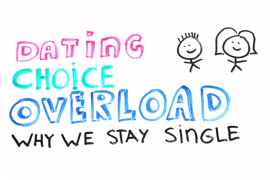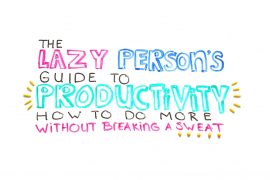Our default response to ‘How are you?’ is usually something like ‘so busy’. It seems as though we feel busier than EVER, but is this really the case?
In fact, sociologist John Robinson has shown that we have more leisure time than ever. He showed that the average working hours across the globe have been steady or going down in the last forty years.
So why do most of us FEEL so busy all the time?
Why We Feel So Busy
There are several explanations for this phenomena. First of all, due to the rise of the average incomes, time has literally become more valuable. We feel more pressured to use that time wisely and squeeze in as much activities as we can.
Another reason lies in the type of work. We have shifted from mostly manual labor to more knowledge based work. When working in a factory you could not go on forever because you were simply dependent on the available resources. But today, the resources are endless. There are always more emails to answer, more ideas to execute, more skills to learn and more articles to read.
The third reason has to do with HOW we spend our time. At work we no longer spend our whole day working on just one or two tasks. And during the weekend, many of us don’t just plan one activity. In fact, we even like to multitask and do three things at a time! Our time has become more fragmented. Switching between all these roles makes us feel time pressured.
Dr. Ed Hallowell, former professor at Harvard Medical School and bestselling author, points out that people who do not have Attention Deficit Disorder often still show many of the symptoms due to lives that are so busy that they overload their brains. This is what he calls “culturally induced ADD.”
Being Busy As A Status Symbol
Being busy has become a status symbol. It’s a sign that you are doing something important at work, that you have many friends and that you are in the gym working on that beach body.
But feeling stressed, overwhelmed or busy all the time isn’t good for us. It’s not healthy. Researchers at Yale University found that stress reduces the volume of grey matter in the areas of the brain responsible for self-control.
Here are 5 tips to help you spend your time wisely, reduce your stresslevels and increase your energy.
1. A list a day..
Writing down all your thoughs, worries and to-do’s is the quickest way to reduce the feeling of being overwhelmed. Besides, checking tasks off of your to-do list is a great way to motivate yourself. Our brains LOVE progress. Making your progress visible to your brain will increase our motivation. Read more about it in These 5 Easy Tricks Will Help You Stay Motivated Every Day According To Science.
2. We can do it all, just not all at once
Do you feel busy all day but also spend two hours doing something you don’t really NEED or WANT to do? Stop it! Staying focused is the key to being productive and keeping your cool. Read more about this topic in Productivity: Expert Advice On How To Get More Done.
3. Get into a routine
Our brain loves routine. Why? Routine uses less energy. During the day we make a lot of choices and this is weighing down our mental energy. That is why Steve Jobs wore the same outfit every day. By routinizing your day you can preserve your mental resources and keep enough energy for the important things in life.
4. No more multitasking
The more different tasks and activities we do during the day, the more fragmented our time feels and the more time pressure we experience. When you have to do several tasks it may be wise to stick to one or two tasks per day, and plan out your whole week like this.
5. Stop planning your leisure time
We love to plan our every move. We even schedule our time to have fun. But study shows that planning your leisure time makes you enjoy it less. Structured time feels more like a task or obligation, resulting in less pleasure. So stop planning too far in advance, stop setting the exact time and location and just ENJOY.
Will you put these tips into practice?






